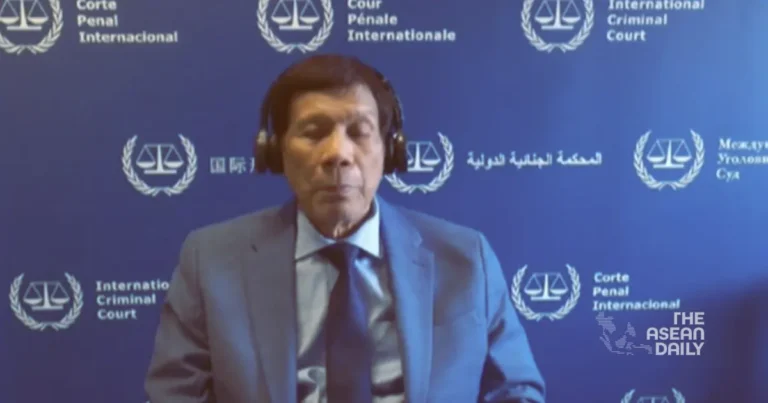28-3-2025 (MANILA) Former Philippine President Rodrigo Duterte’s 80th birthday celebration on 28 March was spent within the austere confines of the International Criminal Court’s detention facility in Scheveningen, near The Hague—a stark contrast to his previous life of presidential privilege.
The man who once scoffed at the prospect of facing international justice, dismissing it with characteristic bravado and insisting he would only submit to Philippine jurisdiction, now occupies a standard cell in the Dutch facility. His current accommodation, though basic, stands in marked contrast to the overcrowded Philippine detention centres that became overwhelmed during his controversial anti-drugs campaign.
His daughter, Vice President Sara Duterte, has emerged as a steadfast presence in The Hague, working to assemble her father’s defence team whilst sharing glimpses of his daily life in detention. She revealed touching details of his modest requests—Coke Zero and shaving cream—and his reluctance to venture outdoors, despite having access to recreational facilities.
The former president’s legal journey began with his arrest at Manila’s international airport, followed by his first court appearance on 14 March. His next hearing, focusing on charge confirmation, is provisionally scheduled for 23 September. His lead counsel, Nicholas Kaufman, has expressed strong confidence in securing an early acquittal.
Meanwhile, in the Philippines, political allies have mounted challenges against the legality of Duterte’s transfer to the ICC, though the current administration maintains its stance on honouring international obligations through Interpol. Senator Ronald “Bato” dela Rosa, who spearheaded Duterte’s controversial drug war and potentially faces similar charges, offered words of solidarity via social media.
The detention facility’s strict protocols have affected family visits, with authorities recently declining Sara Duterte’s request to bring additional supplies and preventing a visit from Honeylet Avanceña, Duterte’s common-law wife. Despite these restrictions, the former president has reportedly begun forming connections with fellow detainees, though language barriers persist as many speak French.
Sara Duterte reports that her father remains deeply engaged with his legal situation, frequently expressing his preference for facing trial in his homeland. His current circumstances represent a profound shift for a man who once wielded considerable power and adamantly refused to acknowledge the ICC’s authority over Philippine matters.
In an ironic twist, the spartan conditions of his current detention sharply contrast with the overcrowded Philippine prisons that swelled during his administration’s aggressive anti-drugs campaign, which saw numerous small-scale offenders caught in prolonged legal proceedings.




